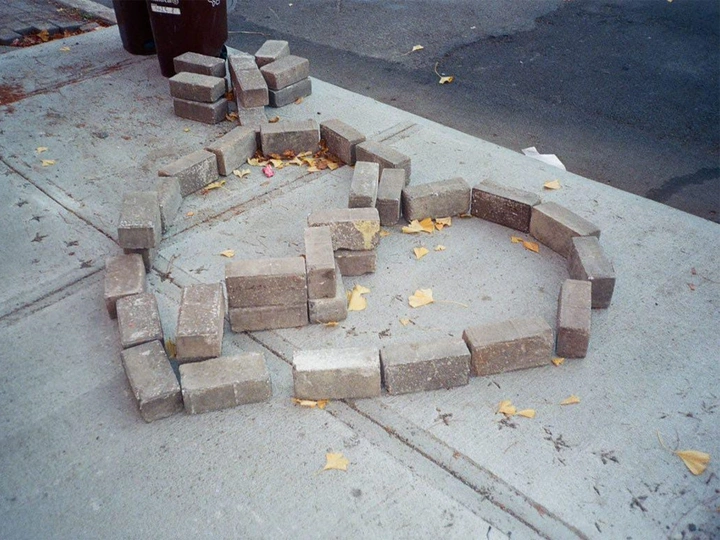Spaces for dislove

I am a Chilean architect, artist, and researcher based in Barcelona, whose practice is shaped by a deep commitment to memory, affect, and social transformation. My work explores how emotions—particularly those considered negative or uncomfortable—can be tools to read, resist, and reimagine space. I am especially interested in how experiences such as heartbreak, grief, and collective rage manifest in architecture and the urban environment.
I hold a Master's degree in Art and Design Research from EINA (Barcelona), and I am the co-founder and editor of opencall, an editorial collective focused on critical spatial practices. Through fanzines, workshops, and public programs, we seek to publish situated knowledge and amplify marginalized voices. Our fanzine opencall_vol.02: “Territorio en disputa” and the children’s workshop Ciudades de papel were both selected for the XXIII Chilean Architecture and Urbanism Biennial (2025).
I have curated exhibitions such as Junio WEKX (2023–2024), a series of public encounters on queer architecture, and Ayudamemoria (2023), an exhibition on women detained-disappeared during the Chilean dictatorship. I was also part of the Pabellón por la Memoria, commemorating the 50th anniversary of the 1973 coup.
As an artist, I have collaborated with Elena del Rivero in the production of Transitar la quema, presented at Museu Tàpies, La Capella, and Santa Maria del Pi. My current solo research project Espacios para el desamor explores heartbreak as a political and spatial phenomenon, and was presented at Lluerna: 50 Years of Fundació Miró and in the exhibition Tramas Imaginarias (Espai 2, Àngels Barcelona).
Across disciplines, I work to bridge architecture, emotion, and collective memory—seeking to reveal what is often excluded from the architectural canon.
“Spaces for Dislove” is an artistic and spatial investigation that seeks to explore how emotions such as heartbreak, grief, and anger manifest themselves and transform urban and domestic spaces. The project stems from a personal and collective question: how do we inhabit heartbreak?
Born from an everyday anecdote in a lonely square, this research has evolved over more than two years, articulating tools from architecture, urban studies, and artistic practices to propose a critical reading of the emotional as a spatial and political dimension.
Through methodologies such as affective cartography, emotional walks, interviews, visual archives, and site-specific performances, the project seeks to de-rationalize traditional ways of reading and designing the environment, proposing that marginalized emotions—such as sadness or anger—are also forms of spatial knowledge.
The work has been deployed in multiple formats: performances, installations, graphic publications, and spatial models. It has been presented in spaces such as the Lluerna Festival (Miró Foundation), Espai 2 (Angels Barcelona), and collaborative events in urban contexts. One of its most recent phases proposes a site-specific installation that organizes space around three concepts: rupture, emptiness, and memory.
My interest is to continue expanding this research into other areas, connecting with communities, collectives, and institutions that question the dominant urban model. The project is conceived as an adaptable and open process, with the possibility of being developed in multiple formats: from workshops to publications, from walks to free educational tools.
“Spaces for Dislove” seeks to reveal the emotional fissures of contemporary space and propose that, from a sensitive and collective perspective, it is possible to imagine other ways of inhabiting it.